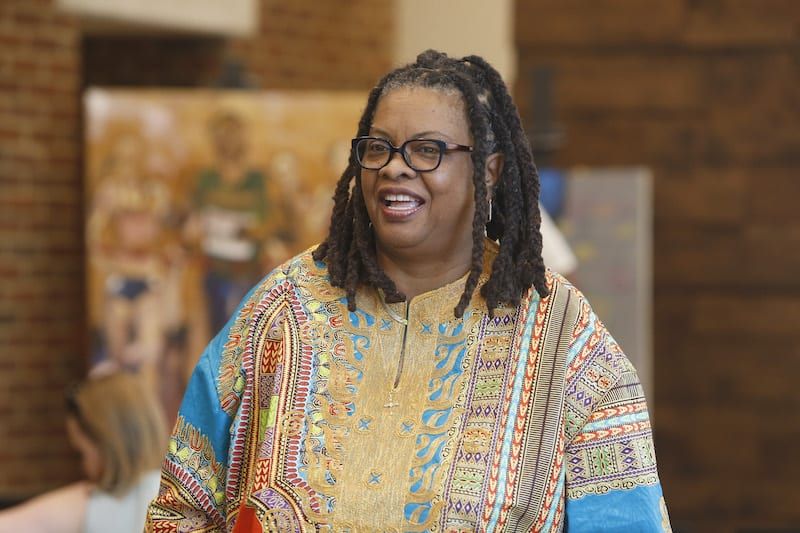When COVID-19 hampered tornado relief, Teresa Smallwood raised thousands for Nashville’s hardest hit
After deadly tornadoes ripped through Nashville on March 3 taking more than two dozen lives, Vanderbilt Divinity School postdoctoral fellow Teresa Smallwood started helping tornado victims through her church, New Covenant Christian Church, which served as a staging area for relief agencies.
Within a couple of weeks, the COVID-19 pandemic struck and prompted shelter-in-place protocols that complicated relief efforts.
“A pandemic on top of a tornado is not something you can really imagine unless you are right in the midst of it,” Smallwood said. “COVID-19 was compounding the problems. When you give a protocol that says shelter at home and you don’t have a home, where are you going to get shelter?”
The historically African-American community of North Nashville had been devastated. Smallwood wanted to do more, so she turned to what she does best: writing.
“I’m not able to cut down limbs and move debris, so I did what I can do. I put pen to paper, I put fingers to keyboard."
—Teresa Smallwood
“I’m not physically able to go out and shovel and cut down limbs and move debris,” Smallwood said. “So I did what I can do. I put pen to paper, I put fingers to keyboard. I wrote grants so we could help people who were displaced.”
Initially Smallwood was able to apply for and receive more than $67,000 in grant money to go toward relocation services, food supplies, temporary housing support and transportation assistance.
The Henry Luce Foundation, the organization that funds the Divinity School’s Divinity School’s Public Theology and Racial Justice Collaborative, for which Smallwood serves as associate director, invited Smallwood and her colleagues to write a proposal for a rapid release fund to make mini-grants.
The foundation responded with a grant of $150,000, which Smallwood is distributing to 501(c)(3) partners via an invitation-only grant submission process.
“What this experience has shown me is that my faith, coupled with my educational prowess, can make good for the people who need it most in moments like this,” she said.
Smallwood’s desire to bring restoration and healing to others is rooted in her own journey to self acceptance as a queer woman of color in the South.
“I grew up Baptist, and I can tell you the community that raised me and showed me love also was the community that rejected me,” the North Carolina native said. “When your own people say to you that you are an abomination, you’re either going to tuck tail and run and never go back or you are going to find a way to stand. And the latter is what I’ve done.”
She has found a place of comfort and acceptance at New Covenant, which less than a year ago ordained a transgender person to its clergy.
“When I walked into New Covenant, it wasn’t just tolerance, it was acceptance that I felt,” Smallwood said. “It didn’t matter if you came from one walk of life or another. I am proud to say our church has what we call an LGBTQ community. But labels aren’t something we emphasize. The message is, ‘You are welcome here because you are a child of God.’”
After tornadoes and a global pandemic, more trauma: the tragic death of George Floyd at the hands of a white police officer has triggered worldwide protests, riots and the exposure of a long festering wound in the fabric of America.
“I was paralzyed at first, but I’ve begun to find my way to a place of advocacy,” Smallwood said. “I am writing a piece about the George Floyd incident, which I hope to make an impact with, once it’s published. I hope I can be of aid to the folk who are on the frontline.”
Smallwood said despite all the hurt in the world, everyone can make a difference.
“Look at the gifts you have,” she said. “Wherever your heart is, whatever you can do, you can do good with it.”
